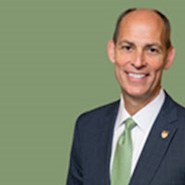
By Lauren Bailey & Thomas Smith, III
Situation
A member of ASCE was vice president of a construction firm and was the responsible engineer in charge. The firm was owned by three people, one of whom served as the president. Following failed employment contract negotiations, the president resigned from the firm. On the day of his resignation, he called the ASCE member to inform him that he was starting his own engineering firm and to offer the ASCE member a job. The ASCE member accepted the offer and submitted his resignation that day. The resignation was to become effective two days later.
The next day, while still employed by the construction firm but after his resignation notice had been submitted, the ASCE member communicated with several other employees of the construction firm and offered them employment with the newly formed company. Approximately 31 employees accepted the offer and joined the new company. Upon its formation, the new engineering firm informed the construction firm's clients of its existence and location and asked to be considered for work.
Question
Did the member violate ASCE's Code of Ethics by recruiting employees to work at the new company while he was still employed by the construction firm?
Discussion
Canon 4 of the Code of Ethics reads as follows: "Engineers shall act in professional matters for each employer or client as faithful agents or trustees, and shall avoid conflicts of interest." Canon 6 also has a bearing on the matter, having this to say: "Engineers shall act in such a manner as to uphold and enhance the honor, integrity, and dignity of the engineering profession."
The Committee on Professional Conduct (CPC) concluded that the engineer may have violated canons 4 and 6 of the Code of Ethics and forwarded the case to the Executive Committee of the Board of Direction. It recommended that a letter of admonition be sent to the member and a description of the case and of the action taken be published by the Society without mentioning the member's name.
As permitted by subsection 3.0.8 of the Society's rules of policy and procedure, the member signed a consent agreement admitting the facts and waiving his right to be present at the hearing and present a defense. The Executive Committee accepted the recommendation of the CPC as it was presented. Had the Executive Committee not taken the action recommended by the CPC, the consent agreement would no longer have been valid and the member would have been entitled to be present at the hearing and to present a defense.
© ASCE, ASCE News, MONTH, 20XX



